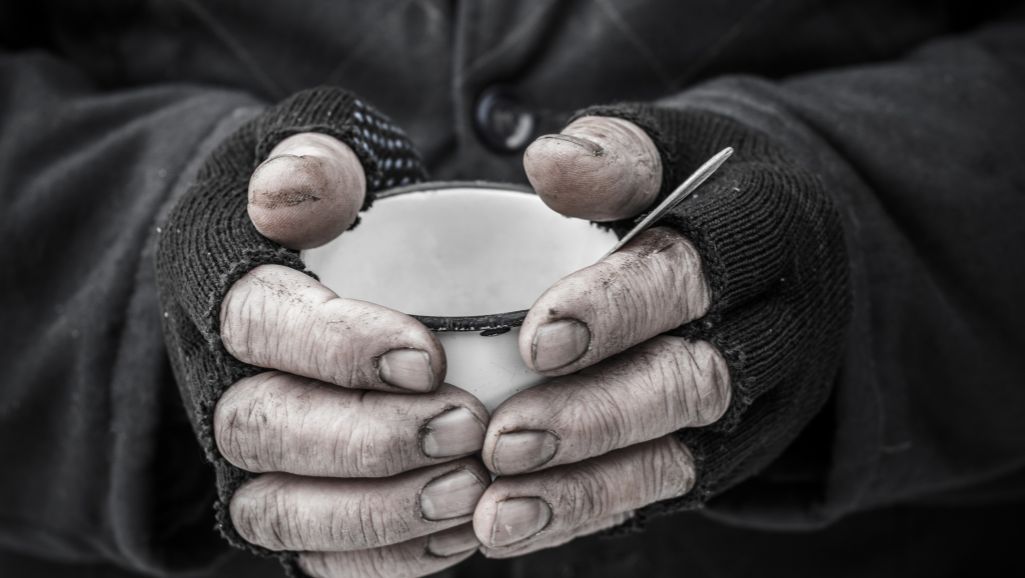Everybody’s lives have been affected by Coronavirus, but people without homes have been hit hard by the sharp fall in tourism, the closure of public toilets, and nighttime curfew.
The stigma around homelessness means that people can be unwilling to help. However, people can become homeless for many reasons outside of their control – such as losing their job, as many have during the crisis. They deserve compassion and support from those who can provide it.
If you decide you have the means to help Prague’s homeless population, it may be challenging to know where to begin, so to educate ex-pats, nonprofit organisation Mistni Mistnim (Locals for Locals) founder Ester Pacltova and Jitka Modlitbová, the Director of Social Service with the Salvation Army in the Czech Republic, shed some light on common questions.
How many people are homeless and what is their demographic?
It’s difficult to say how many homeless people live in Prague. In 2011, the Czech Statistical Office attempted to count the number of people living without permanent shelter in the whole of the Czech Republic for the first time. They counted 11,496 people. However, this doesn’t consider those who are considered hidden homeless. “We know this is nowhere near the reality,” Modlitbová argued. “They simply counted people they saw on the streets.”
In 2012, the Czech Statistical Office counted up to 100 thousand people who live in poverty, which puts them at risk of becoming homeless. Meanwhile, a study from the same year by Hradecký et al estimated around 30,000 people according to the ETHOS classifier.
While the exact figure is impossible to pin down, it has grown since 2012, especially during the pandemic. The demographic has also shifted. Modlitbová explains: “Four out of five homeless people are men. But we have recently seen a rise in senior citizens using services, as well as more young adults and people who experience mental and physical health problems. These are the people who struggle the most.”
How and where you can help as an ex-pat.
Pacltová began with a reminder that the homeless are not a homogenous group – they have diverse needs.
If you meet somebody on the street, there are many things you can do. You can offer them food, water or money. Most important, says Jitka, is to remember that you don’t need to be an expert to engage with homeless people. Even if you don’t want to give them money, it is important to simply acknowledge them, Modlitbová stresses: “Homeless people often talk about feeling invisible, so just noticing them can go a long way. Behave normally, like you would with anyone. Be polite. They may smell. Look strange or act in ways you don’t like, but don’t be aggressive or call the police.”
Pacltová agreed: “Many people without a home have negative experiences with society. People look through them. If you are rushing past the same person on your way to work every day, maybe leave 10 minutes earlier so you can have a chat with them. Don’t approach with fear, as they will be able to tell.”
Other practical things you can do include:
- Research; Look at initiatives in your area; they may need volunteers. Many of which are bottom-up, such as Food Not Bombs and Cakes Not Bombs – put your lockdown baking skills to good use!
- The City Council prints a guide with the addresses of services, but this isn’t regularly updated – so it is best to go directly to smaller digital services.
- Místní místním is an NGO which has built a network of support. Every Sunday they distribute around 150 masks, 50 disinfectors, 60 baguettes, and other food to people on the streets of Prague. You can donate here.
- As part of a Christmas event, they are also baking cookies for people without a home, to bring them a bit of joy for the holiday that can be tough and lonely for many. You can help with your money or your time.
- Google the Mapa Bezdomova (Map without a home), which shows where facilities such as WC’s, day centres, and health centres are in Prague.
- If they are injured, check they are responsive and call an ambulance if necessary.
- Take them for a coffee, or to a public library with computer access.
- Donate. There are many different initiatives across the city. Nocleženka is a voucher for a homeless person to spend one night in a Salvation Army shelter, which includes hot food and drink and access to the facilities. It cost 100 crowns. You will receive an email when somebody uses the voucher.
- You don’t have to donate money. You can donate clothes, which is especially important now, as people can die in freezing temperatures. Wrap a scarf around a tree or leave a coat on a bench if you wish, but it is best to go directly to a shelter, or clothes collection points across the city.
Support Prague Morning!
We are proud to provide our readers from around the world with independent, and unbiased news for free.
Our dedicated team supports the local community, foreign residents and visitors of all nationalities through our website, social media and newsletter.
We appreciate that not everyone can afford to pay for our services but if you are able to, we ask you to support Prague Morning by making a contribution – no matter how small 🙂 .




